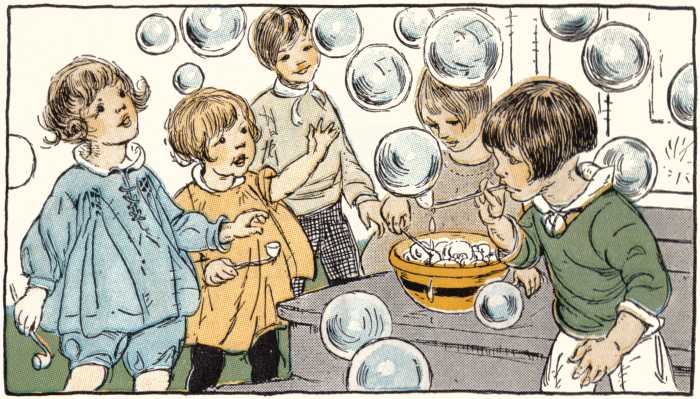So Anthony Faggiani of East Islip, N.Y. is suing the Long Island Rail Road for “serious psychological injuries and distress.”
Archive for February, 2009
NRDC’s non-compliant onesie
Presumably the Natural Resources Defense Council, which filed the successful lawsuit under CPSIA to make unlawful the sale of large existing inventories of children’s goods, will yank from its online store its own infant offering before next Tuesday. On Twitter, an NRDC person said the group didn’t think its use of the garment as a premium was covered by the law because only manufacturers have to worry about testing, right? (Wrong.) Common Room and Patrick @ Popehat have the story. More: Kathleen Fasanella.
Do as we sue, not as we do, or something like that.
P.S. A totally different legal angle on “onesie”: I hadn’t realized Gerber claims ownership of the word and sends out nastygrams to back up that view.
Buying (or selling) a used car
A legal hazard you might not have expected.
Mel Weiss invested with Madoff
American Lawyer has the story (more: AmLaw Daily, ABA Journal). Because, if you asked why the former dean of the shareholder class-action plaintiff’s bar deserved those hundreds of millions in court-ordered fees, you would have been told that society needed to reward his unsurpassed skills at sniffing out securities fraud. Can you imagine how Weiss as a lawyer would have shredded some hapless middleman financial defendant who thought it wasn’t necessary to do due diligence on an investment manager in placing funds because, well, he seemed like a nice guy at the time?
Weiss is in jail now on unrelated charges, of course, but he might make a fun person to name as lead plaintiff in a suit against Madoff.
CPSIA chronicles, February 6

A Wall Street Journal editorial this morning:
The runaway train that is the Consumer Product Safety Improvement Act is heading toward a collision next Tuesday. … The Consumer Product Safety Commission (CPSC) has voted to delay the requirements for one year but this will have little practical impact: The lead standards still apply and retailers don’t want to carry uncertified products lest they become targets of plaintiffs attorneys and state attorneys general. … Senator Jim DeMint is planning to offer an amendment to the stimulus package to [introduce some rationality into the law], though getting support for it will be a taller order.
Advocates of a maximally stringent CPSIA on Capitol Hill and among purported consumer groups won two victories yesterday. In one, a New York federal court struck down an interpretation by the CPSC that would have banned only the manufacture or importation, and not the sale, of children’s products containing certain phthalates (chemicals used in softening plastics) as of Feb. 10. The effect of that policy would have been to allow businesses to sell off old inventories until they were gone. The judge ruled that the law by its terms clearly bans sale as well, which means existing toy inventories either not free of the chemicals, or which cannot be practicably tested to disprove their presence, will presumably become valueless as of next Tuesday and headed for landfills. “It won’t be hard for them” (makers of children’s goods) to comply, said attorney Aaron Colangelo of the Natural Resources Defense Council, and one must assume Mr. Colangelo is willing to take the risk of becoming a laughingstock if that prediction doesn’t pan out. In the other ruling, the CPSC turned down an emergency request to suspend the law’s operation for six months.
In other news, the New York Times finally covered CPSIA yesterday. Well, actually, it only covered one sub-sub-category of the CPSIA catastrophe, the effective ban on kids’ dirt bikes, and only on its automotive blog Wheels rather than in the newspaper proper. But you have to start somewhere. And this morning it ran a brief AP item presenting the court decision on phthalates from the consumer groups’ point of view. As I’ve mentioned, the Times sets the tone for news coverage at many other news organizations, and it has still not seen fit to inform its readers that the law poses any problem whatsoever for crafters, small apparel makers, publishers of children’s books, libraries, resale and thrift stores, or the makers of board games, comic books, musical instruments, religious goods, hair scrunches, or ballpoint pens. Oh, except for that blog item on dirt bikes.
To pass from the ridiculous to the sublime, Lissa Harris has another great piece of reporting in the Boston Phoenix (“Congress’s War on Toys”), detailing the effects of the law — stay or no stay — on an importer of eco-friendly handicrafted European playthings, “hippy knitters in Somerville”, and a kids’ boutique in Jamaica Plain, among others.
New trade associations are springing up, like the recently formed “CPSC Legwear Coalition,” whose members felt it necessary to declare in a recent press release that “lead is not commonly used in legwear manufacturing.”
Ashland, Mass. toy importer Rob Wilson says
the consumer groups have lost a lot of credibility among the indie artisans, organic advocates, and environmentalists that should have been their biggest supporters on children’s safety.
Says Wilson: “I’m canceling my Consumer Reports subscription.”
Heartkeeper Common Room continues her great commentary with critiques of the reports that ran in CNNMoney.com and USA Today, as well as of a more recent (very belated and inadequate) Associated Press gesture toward reporting the story:
The AP says the law is applauded by parents and consumer advocates and jeered by industry — I am a parent, not in the industry, and I am jeering.
Great Gravy. [Sen. Mark] Pryor says it’s all [CPSC Acting Chairwoman Nancy] Nord’s fault because she had, like, five or six months and he doesn’t know what else she’s been doing. There is no mention of the fact that Congress also put all the nation’s swimming pools under CPSC jurisdiction, Nord says she’s met every deadline imposed by Congress, and there was a new gasoline burn prevention act they had to regulate, nor does the AP note that the Commission is seriously, and deliberately, undermanned by Congress and underfunded as well.
There’s also new coverage on NPR “Morning Edition” and the Des Moines Register.
Should cheerleading count as a sport?
It would certainly make Title IX compliance easier for colleges.
Sweet land of traffic stops
More states are toughening mandatory seat-belt laws in search of cash: for one thing, the federal government bribes them to do so, and that’s aside from the ticket revenue.
CPSIA chronicles, February 5

Five days until the law’s effective date, and far more to round up than space allows:
- Hundreds rally in front of Macy’s in New York’s garment district to protest the law [AP/AM New York; pic, and estimate of crowd at 1,000, at Publisher’s Weekly] Plans for Feb. 10 day of protest [Fasanella/Fashion Incubator]
- Several Senators are reported to have joined as sponsors of Sen. DeMint’s reform bill, which his staff says he wants to offer as an amendment to the stimulus bill (more). More welcome news: Sen. Orrin Hatch (R-Utah) calls for hearings on CPSIA [his office].
- “Using a bazooka to kill a (lead-free) gnat”: the inimitable Prof. Richard Epstein on the law’s high costs and low benefits [Forbes.com]. “Huge job losses” could result unless Congress goes back to drawing board
[Quin Hillyer, Washington Examiner, and more at American Spectator] More from Iain Murray at National Review “Corner” [here and here] and much coverage from Carter Wood at NAM “ShopFloor” as well. - At Crooked Timber, generally a pro-regulation site, John Holbo looks kindly on CPSIA reform — but a guy from PIRG pops right up to defend the measure. Scroll to comments #25 and #28 for good comments by familiar names, and then to Holbo’s own #30 (“I’m increasingly convinced that this is an unusually horrible law.”)
- Reps. Rush and Waxman, Sens. Rockefeller and Pryor blame the whole mess not on their own offices’ drafting, but on CPSC Commissioner Nancy Nord, who resisted many of the law’s extreme provisions, and they demand her ouster [Little Ida]. CPSC Commissioner Thomas Moore likes the law just fine as is, which may help explain why Waxman et al. didn’t call for his head [same]. And yet another “we’re calling the shots here, but any failures are your fault” letter from Rush, Waxman et al to CPSC [Fashion Incubator]. NPR Marketplace’s coverage tends, with the law’s advocates, to promote the “inept agency” rather than the “insanely drafted law” narrative;
- A news account in the WSJ attributes last Friday’s stay to “pressure from manufacturers”, with no mention of grass-roots movement at all. Lame. Meanwhile, CNNMoney quotes safetyists and trade associations, but not small producers, leaving readers clueless about costs. USA Today does a better job at presenting all sides.
- The ultimate acronym? “Congress Passes Stupid Ill-conceived Act” [Three By Sea]
- Rick Woldenberg and Heartkeeper Common Room have both been incisively taking on and refuting the assertions of the law’s diehard promoters, namely, the groups like PIRG, Public Citizen and Consumers’ Union; check out both sites and scroll through multiple posts. And Kathleen Fasanella’s Fashion Incubator promises to stay on top of activist and protest developments.
Public domain image, Ruth Mary Hallock: Grandma’s Graphics.
RFK Jr. at it again on hog farms
Six years ago America’s Most Irresponsible Public Figure®, celebrity environmentalist Robert F. Kennedy, Jr. made himself a laughingstock by announcing that large hog farms were more of a danger to America than Osama bin Laden. Asked about it yesterday while testifying to a House Judiciary subcommittee, Kennedy responded as follows, according to Ralph Hallow in the Washington Times:
“I don’t know if that [quotation] is accurate, but I believe it and I support it,” said Mr. Kennedy, who has been involved in a vigorous legal effort against the meat industry for some years, arguing that manure and other products associated with large livestock producers emit toxic wastes that threaten the environment.
Mr. Kennedy also has said that a single hog consignment can put out more pollution than a city of a million people.
He has also said that every public official in North Carolina has been corrupted by the pork industry. He cited as evidence an editorial in a Raleigh newspaper, although he also said there may be some exceptions. …
Mr. Kennedy has said that he plans to go after all large farms in the country, not just pork producers. He has also said that the “right” lawsuit against livestock producers could bring damage awards of up to $13 billion.
Kennedy is deeply involved with contingency-fee private lawyers running the lawsuits against agricultural producers, a fact that only infrequently surfaces in news accounts about the hothead scion, who’s been the subject of regular coverage at this site since its beginning nearly ten years ago. More: Gateway Pundit.
Markopolos’s case against Madoff
Ray Pellecchia at the NYSE blog Exchanges (via Salmon) writes that had Harry Markopolos sounded the alarm about Bernard Madoff by putting his charges up on a blog, instead of taking them to the SEC and selected investors, there’s a good chance the Madoff scheme would have come tumbling down in short order — except, of course, for the not-unreasonable fear that Madoff might have sued.
P.S.: Unrelatedly, this AP report quotes Markopolos as testifying to the Hill panel yesterday that “the SEC is overlawyered”. (Most of the news accounts, however, insert a hyphen in the quote: ‘over-lawyered'”.)
